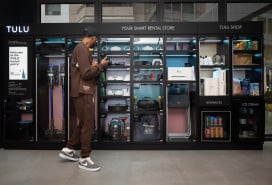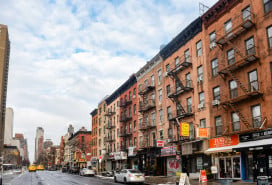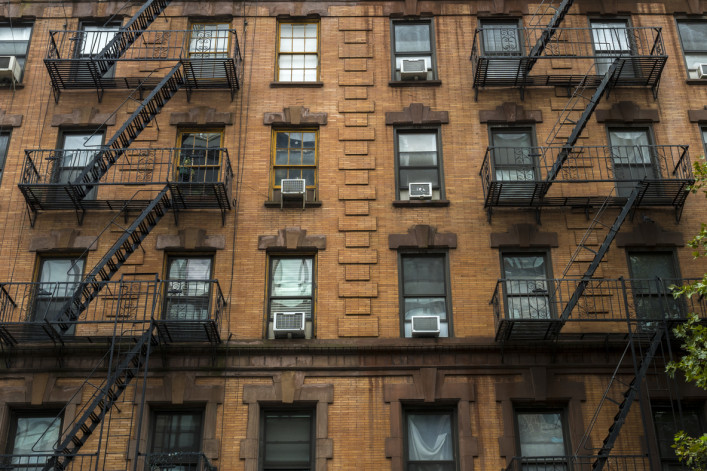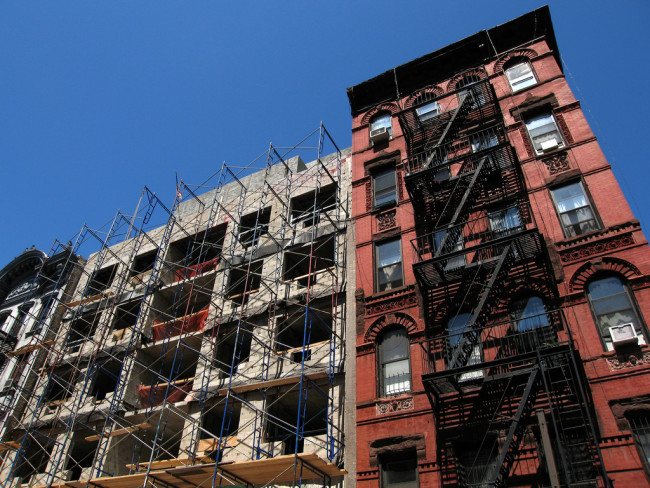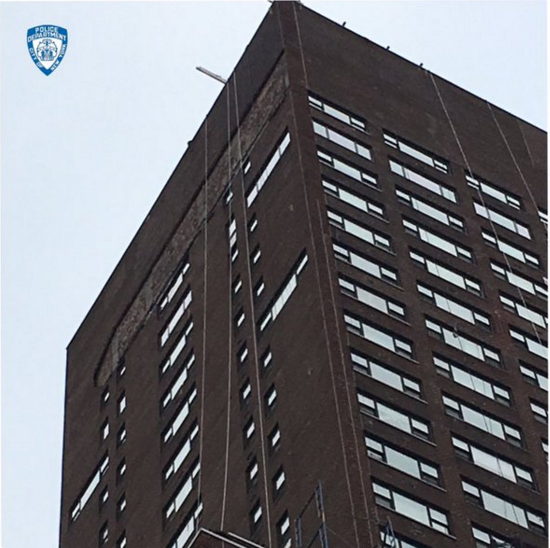My co-op has a Local Law 11 violation. Now what?
My co-op was recently inspected under Local Law 11, and inspectors found safety issues with the facade. What do we need to do to address this, and what can we expect in terms of expense?
It all depends on what exactly the issues with your building's facade are, but brace yourself for the possibility of costly repairs, our experts say.
Local Law 11—also know as the Facade Inspection & Safety Program—requires buildings that are six stories or taller to have their facades regularly inspected. This requirement stems from tragedy: In 1979, a college student was killed when a chunk of masonry plummeted from a building near campus. Local Law 11 is designed to prevent any future injuries or deaths from pieces of building facades falling onto city streets.
Under the law, building owners must hire a professional to inspect the facade every five years; inspectors then submit reports to the Department of Buildings. If a potential hazard is found, owners must repair the issue within 90 days of the report being filed.
"The cooperative board must retain the services of an architect or engineer to prepare a scope of work, and retain a contractor to perform the necessary work to address the unsafe conditions," says Jeffrey Reich, a partner at Schwartz Sladkus Reich Greenberg Atlas. "It is often not possible to have a firm estimate of the cost until the contractor has started work and uncovered any latent conditions."
In fact, there is such a variety of potential issues when it comes to building facades that it may be in your board's best interests to seek out multiple assessments.
"There is a wide range of safety issues —some of which are costly and others not so much," says Deanna Kory, a broker with Corcoran. "You need to hire maybe even more than one building inspector and façade specialist to ascertain what needs to be done."
Depending on the scope of the work, your building may also have to erect a sidewalk shed to protect pedestrians while the repairs are underway, adding to the costs.
"Cooperatives often have to rent sidewalk protection, like sheds or scaffolds, pay filing fees, and pay for site safety personnel," Reich says. "All in all, compliance with FISP can be a very costly endeavor and is one of the challenges cooperative boards face."
Unfortunately, it's not unheard of for Local Law 11-related costs to climb into the millions. When this happens, co-op boards must decide whether to take out a loan or a special assessment, The Cooperator writes. For well-managed buildings, this usually doesn't result in a maintenance increase.
It may be cold comfort, but remember that this law is in place for the safety of all New Yorkers.
Trouble at home? Get your NYC apartment-dweller questions answered by an expert. Send your questions to [email protected].
You Might Also Like




